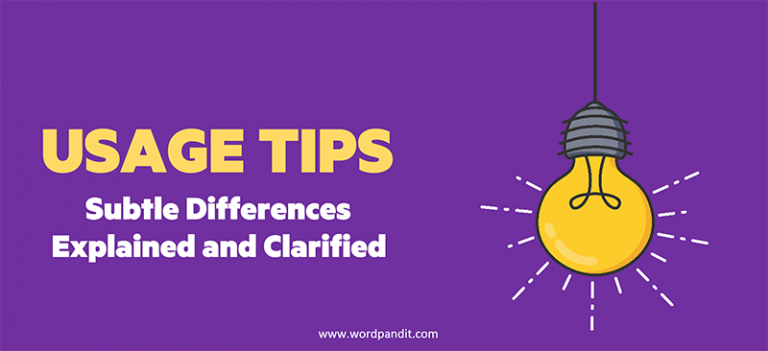Clench vs. Clinch: Understanding the Difference ✨
Have you ever found yourself clenching your fists in frustration 😠 or clinching a victory 🏆? These two words are often used incorrectly, even by seasoned English speakers. Both “clench” and “clinch” sound similar and can sometimes convey related ideas of gripping or securing, which makes them confusing. However, their meanings are distinct, and understanding the difference can help avoid awkward mistakes. Let’s break them down to ensure you never mix them up again. With the right knowledge, you can use each word accurately and with confidence, avoiding any potential miscommunication. 💬
Clench ✊
Definition: To close (something) tightly, particularly one’s hands or teeth, especially in anger or determination. When you clench, there is an element of tension or stress involved, and it often conveys a physical response to strong emotions.
Pronunciation: klench
Etymology: The word clench comes from Old English clencan, which means “to squeeze tightly.” This historical meaning gives us a good idea of why clench involves applying pressure. The idea of squeezing tightly out of determination or emotion is embedded in the very origin of the word, making it quite evocative when used in appropriate contexts.
Usage Examples:
- She clenched her jaw as she tried to suppress her anger. 😤
- He clenched his fists during the intense argument. ✊
- The child clenched his teeth while facing the daunting roller coaster ride. 🎢
Synonyms & Antonyms:
- Synonyms: grip, squeeze, grasp, compress, constrict
- Antonyms: relax, loosen, release, unfurl, uncoil
Clinch 🤝
Definition: To secure or settle something conclusively, or to hold something tightly, particularly during a competition or embrace. Clinch is about achieving finality or bringing something to a successful conclusion, whether it is a physical hold or an agreement.
Pronunciation: klinch
Etymology: The word clinch has its roots in the early 16th century, meaning to “fix or settle.” This sense of finalizing or confirming is still at the core of its meaning today. Clinch implies the act of making something certain or ensuring that a particular outcome is achieved.
Usage Examples:
- They clinched the deal after months of negotiations. 🤝
- The boxer moved in to clinch his opponent to avoid further blows. 🥊
- After years of hard work, she finally clinched her promotion. 📈
- The team’s stellar performance clinched their place in the championship. 🏆
Synonyms & Antonyms:
- Synonyms: secure, finalize, settle, conclude, confirm
- Antonyms: loosen, forfeit, abandon, relinquish, unsettle
Clench vs. Clinch: What’s the Difference? 🤔
While clench is all about tightening or squeezing, often in a physical sense, clinch carries the idea of securing something. Think of clench when you’re closing your fists in determination, and clinch when you’re celebrating that final decisive win. One helps you endure, the other helps you succeed. The key distinction lies in the context—clench is a response to emotion, while clinch is about reaching a conclusive outcome or securing something definitively.
Example to Highlight the Difference:
- In the final moments of the match, she clenched her fists in determination 💪 and then went on to clinch the victory. 🏅
- He clenched his teeth, holding back his frustration 😠, as his colleague clinched the deal that saved the company. 🤝
Mnemonic Device 🧠
- Clench has an “e” like “teeth” 🦷 and “fist” ✊. Use it when you’re talking about squeezing tightly. Remember it as something you do when you’re under pressure or stress.
- Clinch has an “i” like “win” 🏆. Use it when you’re securing a victory or an agreement. Think of it as closing in on success.
Related Words to Explore 📚
- Grip vs. Grab: Another pair that involves holding something but with different intensities and purposes. Grip implies a firm, sustained hold, while grab implies a quick action.
- Grasp vs. Seize: Similar meanings, but different nuances depending on context. Grasp can be more figurative, as in understanding an idea, while seize implies taking something forcefully.
Conclusion 📝
To sum it up, clench involves tightening something, often a body part, out of emotion. Clinch is about securing or finalizing something, like a win or a deal. Keeping these distinctions in mind will help you use these words accurately. By understanding their unique meanings, you can ensure that your language is precise and expressive. Mastering the subtle differences between these words will make your communication clearer and more impactful. 💡
Interactive Quiz 🎮
1. She knew she had to ___ her teeth and face the challenge head-on. 😬
2. The team worked tirelessly to ___ the championship. 🏆
3. Clench means to secure a victory. ❓
4. Which word means ‘to secure’? 🔑
5. The athlete knew this was her moment to ___ the title. 🥇
6. Identify the word related to ‘secure tightly’ based on meaning. 🤔
7. He ___ his fists and prepared to ___ the argument with a decisive statement. 💬👊
8. Which word has origins in Old English, meaning ‘to squeeze tightly’? 📚
9. The word ‘clinch’ can be used to describe tightening your jaw. 😯
10. After months of hard work, they managed to ___ the contract, and she couldn’t help but ___ her fists in excitement. 📝👊













